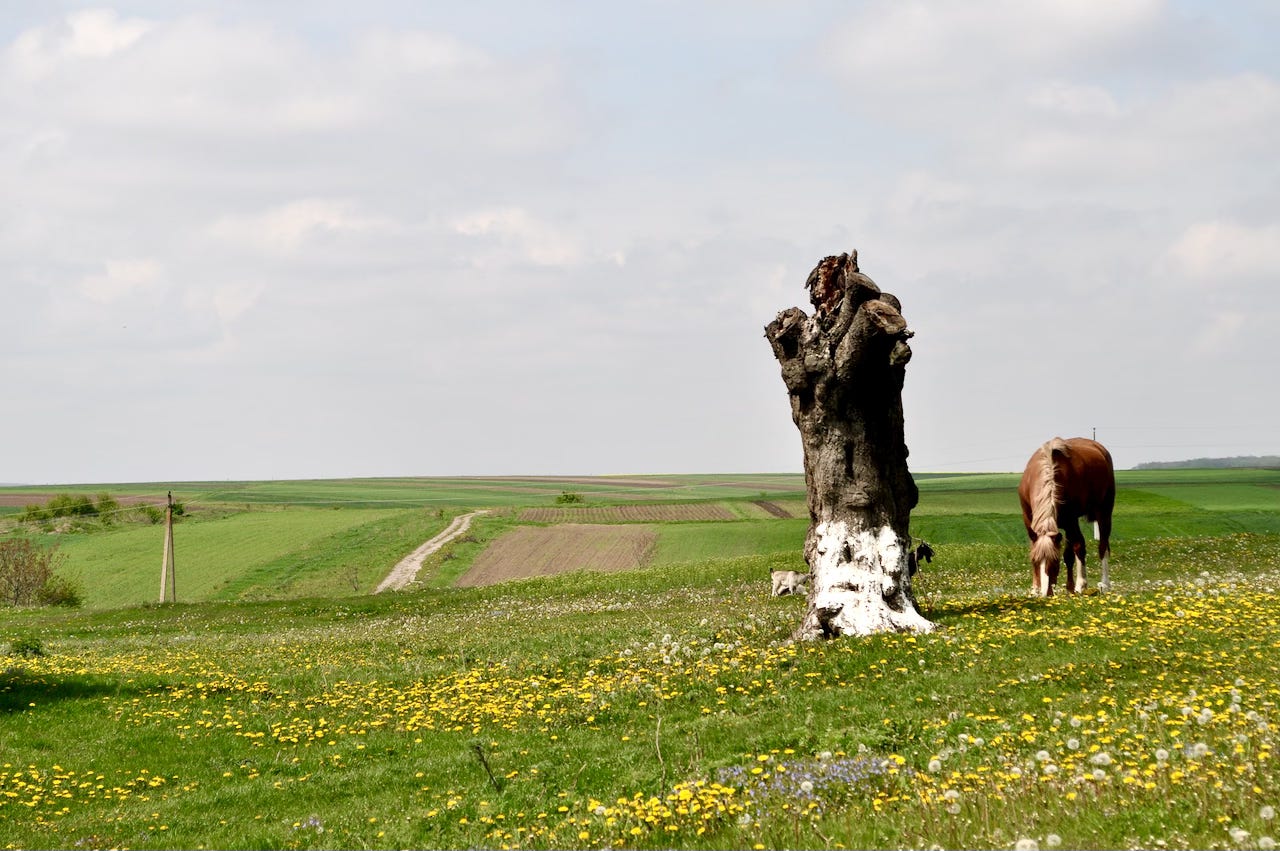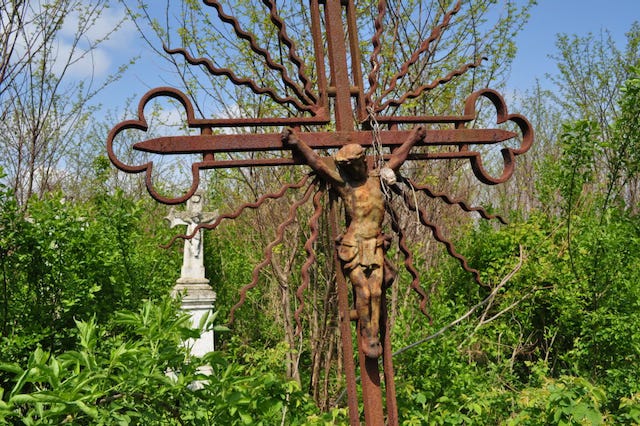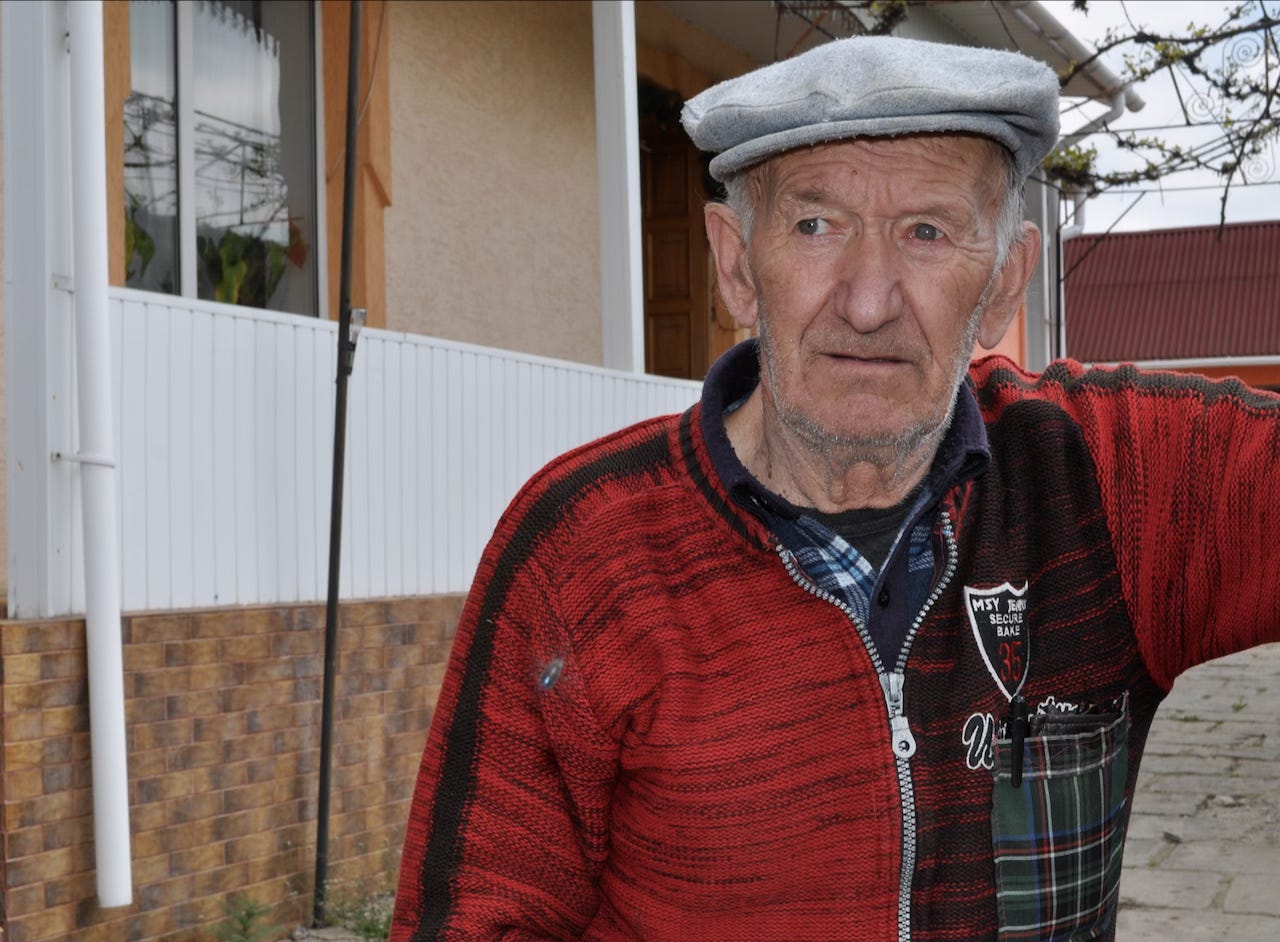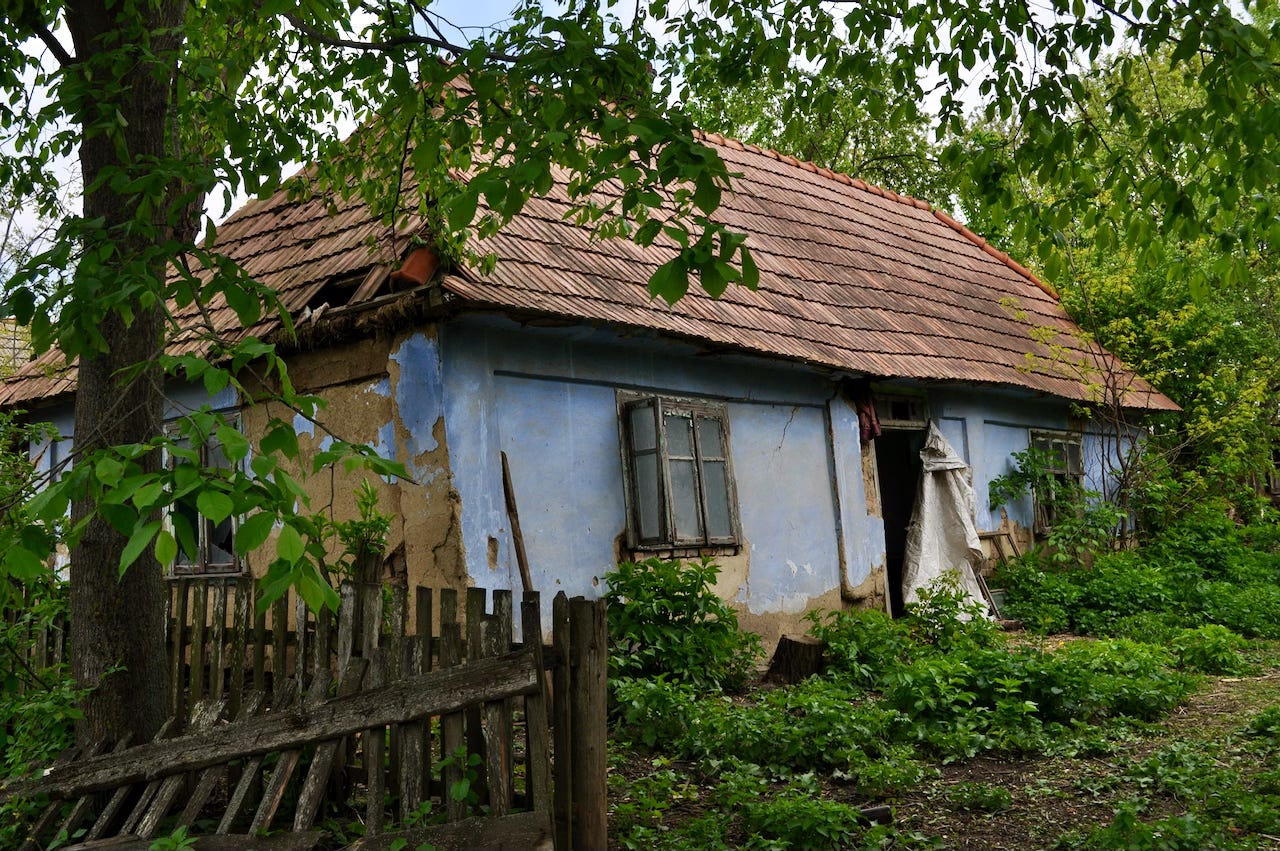Ukraine has been much in the news again, with the sell-out summit in Alaska, the Independence Day celebration a few days ago, and the continuing vicious aerial attacks on the civilian population. My 2019 visit to an ancestral village in western Ukraine reminded me why Ukraine fights for every inch of its territory despite the price it pays to do so.
The horse grazed amid a patch of flowers as springtime fields and an empty road rolled away to a softly clouded horizon. A comforting scene. The remains of a tree, its trunk and branches lopped away, added a discordant note.
We were in Antoniv, my brother and I, the village from which our great-grandfather Nick Demchynski emigrated in 1902. Antoniv used to be called Antonikiw when Nick lived there, and like the village’s name, much had changed since then.
For one thing, there were no more Demchynskis or Demchinskys, however the family name was spelled. This was a disappointment but not a surprise, given the way gusts of 20th-century history blew people in all directions.
Antoniv was a ramshackle place, a couple of streets of rundown houses, some abandoned, straggling along two parallel streets that led to a church, a chapel and a cemetery that was mostly hidden by a regrowth of bush. Somewhere in there might be the grave of Kasanka Zadrochiny, Nick’s first wife, who it was said, he had killed in a drunken rage (Nick Demchynski’s Demons). But we would not find it, given the few hours we had to spend in the village.
We did find Yvgeny Ratushniak, a man in his late eighties, reputed to be the oldest man in Antoniv. A few questions from Sophia Herych, our guide and translator, established his status. My Ukrainian having calcified into broken phrases and shaky grammar, Sophia was an essential part of our visit as was her driver husband Oleh, who navigated the wretched roads to the remote villages we visited in western Ukraine.
Ratushniak’s blue eyes were alert, his face at ease, as he reflected on the life he had lived. The name Demchinsky rang no bells. What he did recall was the decades of labour on collectivized farms that had made up most of his life. Still vivid in his memory was the 1939 Russian invasion when he was still a child. In a secret pact, Hitler and Stalin agreed that the Soviets would not interfere with the German attack on Poland, and in exchange, the Red Army was allowed to seize Poland’s eastern province – Galicia – whose majority population was Ukrainian, or “Little Russian” in Soviet parlance.
The Russians went about their usual brutal business, imprisoning priests and intellectuals, executing people, or sending into exile those who were gentry or better-off farmers.
I was curious to know if Antonikiw still had a lord when the Russians came. During the time of serfdom, these men, often members of the Polish gentry, were the owners of the villages and the people in them. By the early twentieth century, a few decades after serfdom ended, the gentry class was hard pressed. Profligate and impoverished, many sold or otherwise lost their estates.
But some villages still had them, including Antonikiw, when Nick Demchynski lived there. The lord was well off, still a man of wealth and influence, and according to family lore, he helped Nick, whom he employed, escape a penalty for the death of his wife. I was curious to know if there was still a village lord in Ratushniak’s day.
“Yes, there was a lord. He lived right over there,” Ratushniak said, pointing to the field where the horse was grazing. “He had a big house and other buildings, but don’t bother going to look for them. There’s nothing to see. The Russians ploughed everything into the ground so there would be no trace. He and his family were sent to Siberia.”
This man might have been the son of the one who helped spare Nick. No tempered justice for the lord or his family though.
The Russians had hardly settled in when the German invasion came, in 1941. Ratushniak didn’t speak of it, perhaps because it had been too short an occupation to be retrieved from a child’s memory, or because there is lingering shame among many Ukrainians for having welcomed the Germans as liberators.
Fixed in his mind was the Russians’ return in 1944. These were the hardest times for him and the village. As they had done in central and eastern Ukraine in the 1920s and ’30s, the Russians completed what their revolution had started by collectivizing the villages, as much to break the peasants’ spirit as to enforce ideology. There was starvation. People lost their farms and animals, their churches. They were forced to work for the state for paltry wages.
“I worked all day for 300 grams of bread and a couple of coins. Imagine that,” Ratushniak recalled.
It was a return to the serfdom the village had been liberated from a century earlier. Worse, because serfs could at least cling to their faith. Under the Soviets, churches were burned or turned into granaries.
Life got better, but not by much, with the Khrushchev thaw in the 1950s, and then better yet after Ukraine’s independence in 1991. But better is a relative term. The World Bank in 2024 ranked Ukraine, with a per capita GDP of $5,389 U.S., the poorest country in Europe. The latest Russian invasion has made everything worse, shrinking GDP by more than thirty per cent in 2022.
Olga, a woman we met on the street, listened as Ratushniak spoke. Middle-aged and careworn, she offered a contemporary take on life in Antoniv. The village survived on remittances. She had recently returned to the village, just for a few weeks, to visit her grandchildren. Then she would go back to work in other parts of Europe, where she would speak to her employers in the Spanish, Polish and Italian she had learned.
Work was scarce in Antoniv. Some of the nearby fields lay fallow. Others, planted in canola, already bright yellow in the May sunshine, made the landscape look strikingly like the Canadian Prairies. But this was corporate farming done on an industrial scale, yielding little employment.
“Our lands are rich, but there are no jobs,” Ratushniak said. “I don’t remember a time when there were no jobs.”
Since the latest Russian invasion, villages in western Ukraine, already poor, are now flooded with refugees from the east.
Antoniv is one village, a microcosm standing for thousands across Ukraine. Hundreds more have been blasted into rubble in the country’s east. It’s no wonder Ukrainians do not want to see the Russians return and will fight for as long as it takes to keep them away.







My brother and I had been looking for the villages our great-grandparents came from for a number of years, but it wasn’t until I connected with a friend of my mom’s family who is a genealogist that we were able to put a name to them. I expect I will make mention of him in a future post. His contribution to my research has been invaluable.
How fortunate you and your brother were able to visit your ancestral home and homeland… May the war end and Ukraine be blessed with peace and prosperity and thrive once again 🙏🏻